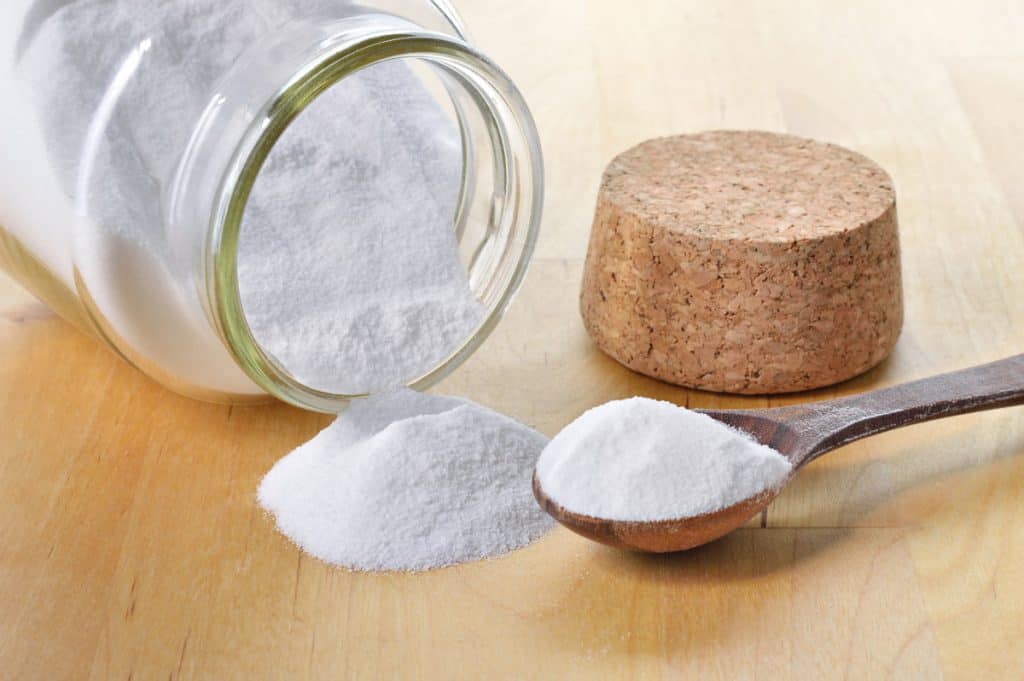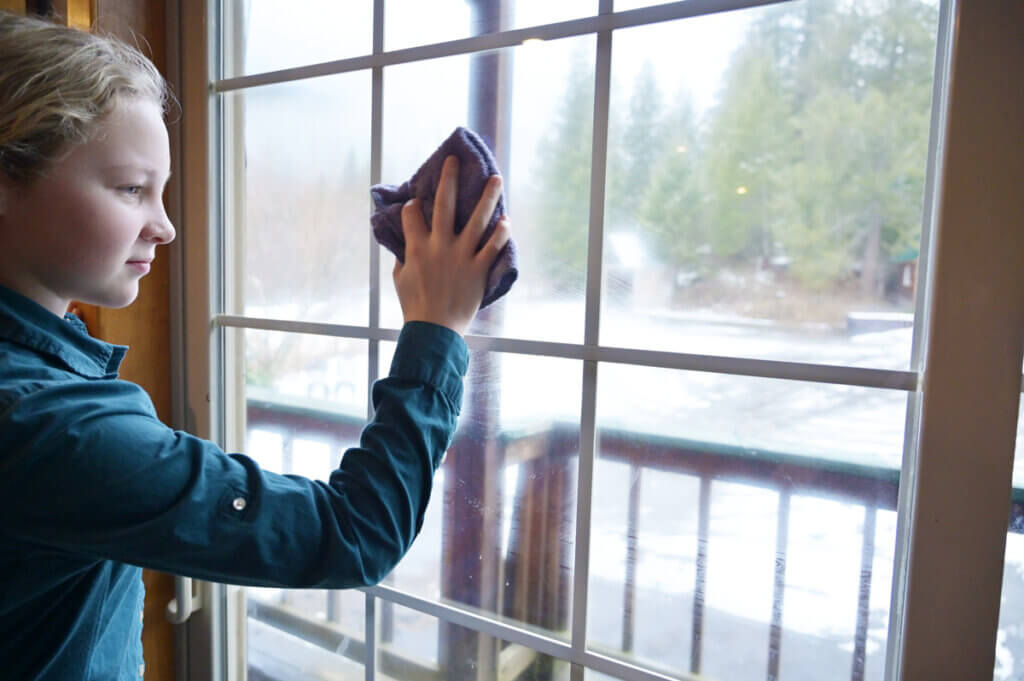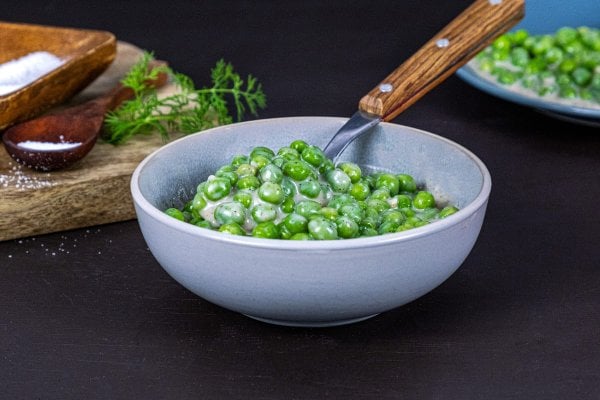Did you know that citric acid, a common compound found in many fruits, has a wide range of uses beyond just adding flavor to food? Its versatility extends far beyond the kitchen, making it a valuable substance in various aspects of our daily lives.

From cleaning and personal care to food preservation, citric acid offers countless benefits that can enhance our routines naturally and effectively.
Table of Contents
ToggleWhy I Love These Citric Acid Uses
If I can clean my home with natural substances that allow my children to jump in and help, that’s a win-win in my book. If you’ve been around here for a while, you know I love homemade cleaning supplies like my all-purpose cleaning powder, this homemade glass cleaner, homemade disinfectant spray, and even these laundry strategies to keep up with my large family of eleven children.

What Is Citric Acid
Citric acid is a compound that occurs naturally in citrus fruits such as lemons, oranges, and grapefruits. It is responsible for their sour taste and acidity.
Due to its acidic properties, citric acid is commonly used as a food additive. It enhances the flavor and acts as a preservative in various food and beverage products, including jams, soft drinks, and candies. Additionally, it can be found in cleaning products, cosmetics, and pharmaceuticals.
While naturally occurring citric acid is present in fruits, the demand for its use in various applications has led to the development of manufactured citric acid. This synthetic version of citric acid is produced through a fermentation process using specific strains of bacteria, typically Aspergillus niger.
Both types of citric acid have the same chemical composition and can be used interchangeably for cleaning and household purposes.

How Citric Acid Works
Understanding how citric acid works is essential to harnessing its benefits effectively. It’s namely used for promoting acidity, breaking down proteins and as a flavor enhancer and preservative.
Promoting Acidity and Breaking Down Proteins
When citric acid dissolves in water, it releases hydrogen ions, increasing the overall acidity of the solution. This acidity can enhance flavors, balance pH levels, and act as a natural preservative.
Furthermore, citric acid has the ability to break down proteins. This property makes it valuable for various food and non-food applications.
In food, citric acid can help tenderize meat and act as a coagulant in cheese-making. In non-food products like laundry detergents and cleaning agents, citric acid aids in removing stains and breaking down organic matter, making it an effective cleaning agent.
Citric Acid as a Flavor Enhancer and Preservative
One of the primary uses of citric acid is as a food additive. It is commonly used as a flavor enhancer, providing a tart and acidic taste to various food and beverage products, including sodas, candies, and jams.
Citric acid also acts as a preservative, inhibiting the growth of spoilage-causing microorganisms. By creating an acidic environment, citric acid helps extend the shelf life of food products, maintaining their freshness and quality for longer periods.

Common Uses for Citric Acid
Citric acid finds its way into numerous aspects of our daily lives:
- Baking and Culinary Uses – Citric acid acts as a leavening agent in baking, leading to light and fluffy baked goods. Its acidic properties interact with baking soda to produce carbon dioxide, creating the characteristic rise in dough. Furthermore, citric acid is a common ingredient in flavoring agents, giving a tangy kick to candies, beverages, and gelatin desserts.
- Beverage Industry – Citric acid serves as an essential ingredient, bringing a refreshing and sour taste to a variety of drinks. It enhances the flavor profile of carbonated beverages, fruit juices, and cocktail mixes, making them more appealing to our taste buds.
- Pharmaceutical Industry – In pharmaceutical preparation, citric acid is used to improve the bitter taste of many powders, tablets, syrups, and elixirs.
- Cosmetics – Citric acid works as a mild exfoliant on the skin, making it a popular ingredient in many cosmetic products.
- Cleaning Agent – The acidity of citric acid also makes it an effective cleaning agent. It is often found in cleaning products, such as dishwashing detergents, kitchen sprays, and bathroom cleaners. Citric acid effectively removes stains, grease, and mineral deposits, leaving surfaces sparkling clean.

Precautions for Citric Acid
While citric acid makes a wonderful natural cleaner, it’s important to note that it is an acid, so it can create dangerous chemical reactions when mixed with other substances. It is recommended to use only water when making DIY cleaning solutions using citric acid.
Additionally, citric acid is not suitable for all applications around the house. Do not use citric acid on the following:
- Wood Floors – Do not use citric acid to clean wood floors or wooden furniture with a wax sealer. It will break down the seal and cause it to have a cloudy appearance.
- Electronic Screens – It may be tempting to use your all-purpose citric acid spray to clean smudges from your TV, computer, phone, etc., but the acid will destroy the protective layer built into these screens.
- Copper and Brass – Citric acid is not a viable option for cleaning copper or brass as it will cause them to tarnish.
- Natural Stone – Citric acid can cause etching and pitting in natural stone, such as granite and marble.
While citric acid is generally recognized as safe (GRAS) for consumption, excessive consumption of citric acid may contribute to the formation of kidney stones. (Source) Therefore, it is important to use citric acid in moderation and consult with a healthcare professional if you have a history of kidney stones or kidney-related issues.
Additionally, some individuals have reported experiencing joint pain when consuming artificially sourced citric acid. (Source) While this is not a common side effect, it is important to pay attention to your body’s response when using citric acid and seek medical advice if you experience any discomfort.
It’s important to note that I am not a certified medical practitioner. This post is not intended to diagnose or treat but is for informational purposes only. Please consult with your healthcare professional if you have any concerns about using citric acid.

Citric Acid Uses in Recipes
- Home Canning – When it comes to canning fruits and vegetables, citric acid plays a crucial role. It helps maintain the acidity levels necessary for safe home food preservation. By ensuring the pH level remains low, citric acid prevents the growth of harmful bacteria and extends the shelf life of canned goods.
- Dehydrating – Dehydration for food preservation can alter the color and flavor of certain fruits. Citric acid can be used as a pre-treatment. Just mix one teaspoon of citric acid into one quart of cold water and allow your fruit to soak for 10 minutes before draining and loading the fruit on your dehydrator trays.
- Fresh Recipes – When life gives you lemons, but you don’t have any on hand, citric acid can step in as a suitable flavor-enhancing substitute. Whether you’re making lemon-flavored desserts, soups, sauces, DIY elderberry gummies, marinades, or homemade salad dressings, a pinch of citric acid can provide that tart flavor without the need for fresh lemons.
- Salt Substitute – For those who are watching their salt intake, substituting citric acid for salt in recipes (and in the salt shaker) can help enhance the flavor of your foods without increasing the sodium content.
- Leavening Agent – Citric acid is a secret ingredient to help with the rise of baked goods using baking powder. Add ¼ teaspoon of citric acid to the dry ingredients of your quick breads, muffins, or cake batter.

Other Uses for Citric Acid in the Kitchen
Citric acid’s cleaning properties make it a must-have for tackling kitchen grime. Its acidic nature helps cut through grease and stains on kitchen surfaces, leaving them sparkling clean. Whether you’re dealing with stubborn residues on countertops, cutting boards, or utensils, citric acid can be highly effective.
Furthermore, citric acid is an excellent descaling agent for appliances like coffee makers and kettles. Regularly descaling these items with citric acid helps remove mineral deposits and ensures optimal performance.
| Task | Method |
|---|---|
| Descaling Coffee Maker & Tea Kettle | Dissolve two tablespoons of citric acid powder in two cups of warm water. Pour the solution into the reservoir of your coffee maker or tea kettle and run as normal. When finished, run three cycles of clean water through your appliance to remove any leftover citric acid. |
| Disinfect Wooden Cutting Boards and Spoons | Wash the cutting board as normal. Dissolve one tablespoon of citric acid powder in one cup of hot water. Coat the wooden surface with the solution and allow it to sit for 10 minutes. Rinse thoroughly. |
| Countertops | Dissolve two tablespoons of citric acid powder in one quart of warm water. Soak a sponge in the solution, and wipe away grease and stubborn stains. Rinse when finished. |
| Dishwasher Cleaner | To an empty dishwasher, add four tablespoons of citric acid powder to the detergent cup and run a normal cycle on the hottest water setting. |
| Oven Cleaner | Fill an oven-safe dish with water and add four tablespoons of citric acid powder. Place the pan in the oven at 450°F, and bake for an hour (do not let the pan boil dry.) After the oven has cooled, wipe away the oven grime with a clean sponge. |
| Microwave Cleaner | In a microwave-safe dish, add two cups of water and two tablespoons of citric acid powder. Microwave on high until the water boils. Leave the dish in the microwave for five minutes. Remove the dish, and wipe away microwave grime with a clean sponge. |
| Stains | Remove food stains from plastic, melamine, and ceramic dishes by filling your sink with boiling water. Add ½ cup of citric acid powder, and place the dishes in the solution. Allow them to soak for four hours. Drain the water and wash dishes as normal. |
| Stainless Steel Appliances | Mix one tablespoon of citric acid powder with one cup of water and spray it onto your appliances. Allow the solution to sit for a few minutes, and wipe away with a wet sponge. Once the solution is completely rinsed off, dry the appliance with a microfiber cloth. |

Uses for Citric Acid in the Bathroom
Citric acid is a versatile compound that serves as an essential ingredient in various household products, making it a valuable addition to your bathroom cleaning routine. Its natural properties and gentle yet effective cleaning abilities make it an ideal choice for tackling common bathroom challenges.
| Task | Method |
|---|---|
| Soap Scum | Create a simple cleaning solution by mixing citric acid with water and spraying it onto the affected areas. Allow the mixture to sit for a few minutes, then scrub away the soap scum with a sponge or brush. Rinse thoroughly, and enjoy a sparkling clean bathroom. |
| Toilet | To clean your toilet bowl, sprinkle citric acid powder or mix it with water and apply it to the bowl. Let it sit for a while, then scrub with a toilet brush and flush. |
| Mirrors | Mix a small amount of citric acid with water and spray it onto the glass surface. Wipe with a microfiber cloth or paper towel for streak-free results. |
| Bathtubs, Tile and Grout | Dissolve four tablespoons of citric acid powder in a spray bottle with two cups of hot water. Spray over the bathtub, tile and grout and leave for 10 minutes. In especially soiled areas, scrub with a soft-bristled brush. Otherwise, simply wipe away hard water stains and soap scum and rinse thoroughly. |
| Shower Head and Faucets | For limescale buildup, dissolve four tablespoons of citric acid powder in a bucket of water. Remove the shower head and allow it to soak in the solution for 10 minutes. Scrub the showerhead with a soft-bristled brush, rinse, and re-attach the shower head. If you are not able to remove the shower head (or faucet), put the solution in a ziptop bag and secure it to the shower head with a heavy-duty rubber band. |

Laundry Uses for Citric Acid
When it comes to laundry, citric acid can be a game-changer. This versatile ingredient can be used to remove stains, clean your washing machine, and maintain your iron.
| Task | Method |
|---|---|
| Stain Removal | Do you have a stubborn food, oil, perspiration or grass stain? Citric acid to the rescue! In a spray bottle, dissolve 1 Tablespoon of citric acid powder with 1 cup of warm water. Saturate the stain and allow it to sit for at least 15 minutes before washing as normal. |
| Washing Machine | Washing machine drums collect soap scum, limescale and odors that need to be removed on a regular basis. Add one cup of citric acid powder to an empty drum, run a wash cycle on the hottest setting, and run an additional rinse cycle to remove any residual buildup. |
| Iron | Dissolve equal parts of hot water and citric acid powder in a bowl and pour the solution into your iron’s water reservoir. Turn the iron on to the steam setting and let it heat up for 15 minutes. Iron a clean cloth until the reservoir is empty. Turn off the iron, and after it has cooled, rinse the reservoir with clean water. Repeat the process again using only water to make sure all the citric acid has been rinsed from the reservoir. |

Other Uses Around the House for Citric Acid
The power of citric acid isn’t limited to your kitchen, bathroom, and laundry. Here are a few bonus ideas to put citric acid to work!
- Rust Stains – Mix citric acid powder with just enough water to make a paste. Apply a thick layer of the paste over the rust stain and allow it to sit for at least 30 minutes. Using a soft-bristled brush, scrub away the stain. Rinse and repeat as needed until all of the rust has been lifted.
- Making Bath Bombs – Citric acid plays a crucial role in bath bomb recipes, as it reacts with baking soda to create the fizzing sensation that releases essential oils and pleasant fragrances. By incorporating citric acid into your bath bomb-making process, you can create luxurious and aromatic bathing experiences at home.
- Window Cleaner and All-Purpose Cleaner – If you find yourself without vinegar to make this DIY window cleaner, try mixing a small amount of citric acid with water in a spray bottle. Spray it onto the glass and other hard surfaces and wipe it with a microfiber cloth or paper towel for streak-free results.
- Cleaning and Freshening Humidifiers – Humidifiers can accumulate mineral deposits and develop unpleasant odors over time. To make a cleaning solution for your humidifier, use a ratio of one tablespoon of citric acid powder to every cup of water and follow the manufacturer’s cleaning instructions.
And there you have it! By harnessing the power of citric acid in these various scenarios, you can improve the efficiency, cleanliness, and overall functionality of household items. So go ahead and incorporate citric acid into your daily routines and enjoy the natural benefits it has to offer!
FAQ
Citric acid is a natural compound that occurs naturally in citrus fruits like lemons and limes. It can also be produced through artificial sources.
Citric acid is commonly produced through the fermentation process using the mold Aspergillus niger. It can also be manufactured synthetically.
Citric acid has a wide range of uses. It is used as a food additive to enhance flavors and as a preservative. It is also used in cleaning products and can be beneficial for descaling appliances and removing stains.
While citric acid is generally safe, excessive consumption may contribute to kidney stone formation. Some individuals may also experience joint pain. It is important to use citric acid in moderation and consult with a healthcare professional if needed.
Citric acid can enhance daily routines by offering natural and effective solutions for cleaning, food preservation, and personal care. It provides a safe alternative to artificial products and can be used in various areas of the home.

Other Posts You May Enjoy
- Ammonia Uses: Versatile Solutions to Protect Your Home
- Surprising Uses of Salt in Everyday Life
- Versatile Cornstarch Uses for Home & Kitchen
- DIY Borax Ant Killer (No More Ants!)
- Laundry Strategies – How to Keep Up (Large or Small Family)
- Versatile Epsom Salt Uses for Your Home
- How to Clean Cast Iron Properly to Maintain the Seasoning
- Versatile Cream of Tartar Uses in Your Home


















